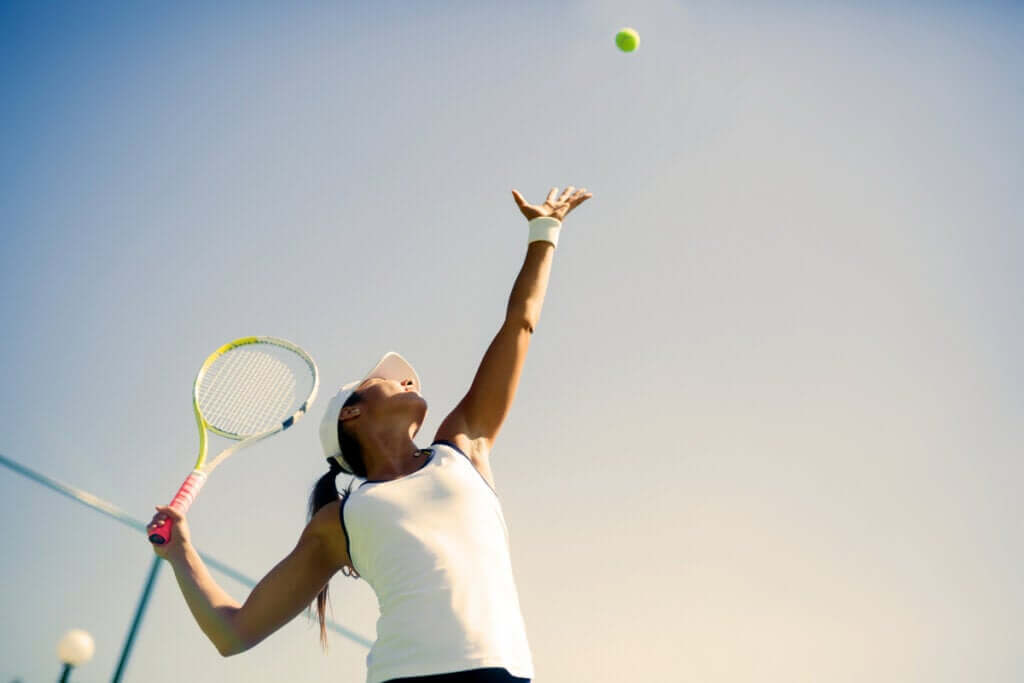The application of psychology in the field of sport is increasingly important and relevant, from the cognitive behavioral model have been proposed many professional strategies in the field of sport, showing the association between levels of self-efficacy and sports performance (Ortega y Meseguer, 2009). In many cases, psychological skills in tennis make the difference between a good player and a great player.
Lucía Jiménez Almendros, former tennis player and now sports psychologist with a phD in the thesis on cognition and positive emotion in competitive athletes, ensures that the limit of sport is in mind, has been confirmed by several elite tennis players (ATP and WTA). that in professional skills, when the technical, tactical and physical aspects are similar, the end result is determined by 95% by emotional factors (Hoya Ortega, 2018).
- In the sporting elite.
- Victory come first and.
- In some cases.
- Is practically the only outcome that matters.
- It is not worth saying that the important thing is to participate.
- Mantra that may be suitable for the most basic workouts.
- When everything is governed by results.
- Classification and pressure.
- Psychological skills are of enormous importance.
- This is where we stress that the difference in joining the sports elite of the tennis elite inevitably goes through strengthening psychological skills.
“The mental part is very important, because in the end bad times always happen and you have to be willing to accept and overcome them. Is it like in life, where you have to accept the good and the bad times with the same calm??. -Rafael Nadal-
Tennis’s psychological skills have a major influence on the physiological, technical and tactical aspects. Tennis players who feel more physically competent are more motivated by competitiveness and also by success/success.
These skills are essential for good performance in high-speed sports, such as tennis, as players need to perceive and interpret information quickly, to have enough time to successfully plan, start, and execute a move.
Tennis is characterized by a high psychological demand, because it has certain characteristics that make it a sport that involves great mental complexities: it is an individual sport, with no time limit and that can lead to a loss of concentration, motivation and activation. many decisions, no long breaks, there are many critical situations that produce ups and downs in performance (Hoya Ortega, 2018).
“I always have in mind that I can beat anyone. That’s not a problem. But I think it’s the same for most athletes. If you don’t think you can win tournaments, you won’t really win” -Roger Federer-
The psychological skills of tennis that help players win the mind game are intrinsic motivation, motivation to succeed (they don’t think they lose, they are realistic and optimistic, they attribute their successes and failures to internal aspects) and the motivation to perform (play well, improve, give it their all). These qualities and behaviors of final aiming are decisive to win the mental game.
Elite tennis players are also nervous, but they have a greater ability to control this anxiety, working on their ability to concentrate, focus on important aspects of the game and not get distracted.
To maintain their mental focus during matches, they follow default action guidelines before and during matches. This makes everything seem more normal and achieve maximum performance.
Anyway, to win the mental game, in addition to playing well, the tennis player must have the feeling that everything happens automatically, without having to think about what he is going to do, but at the same time, he feels that everything is under control.
“To see what can be improved, what has been right and what is wrong, you have to have the necessary attitude and a cold head, and be open to analysis and research. -Rafael Nadal-

